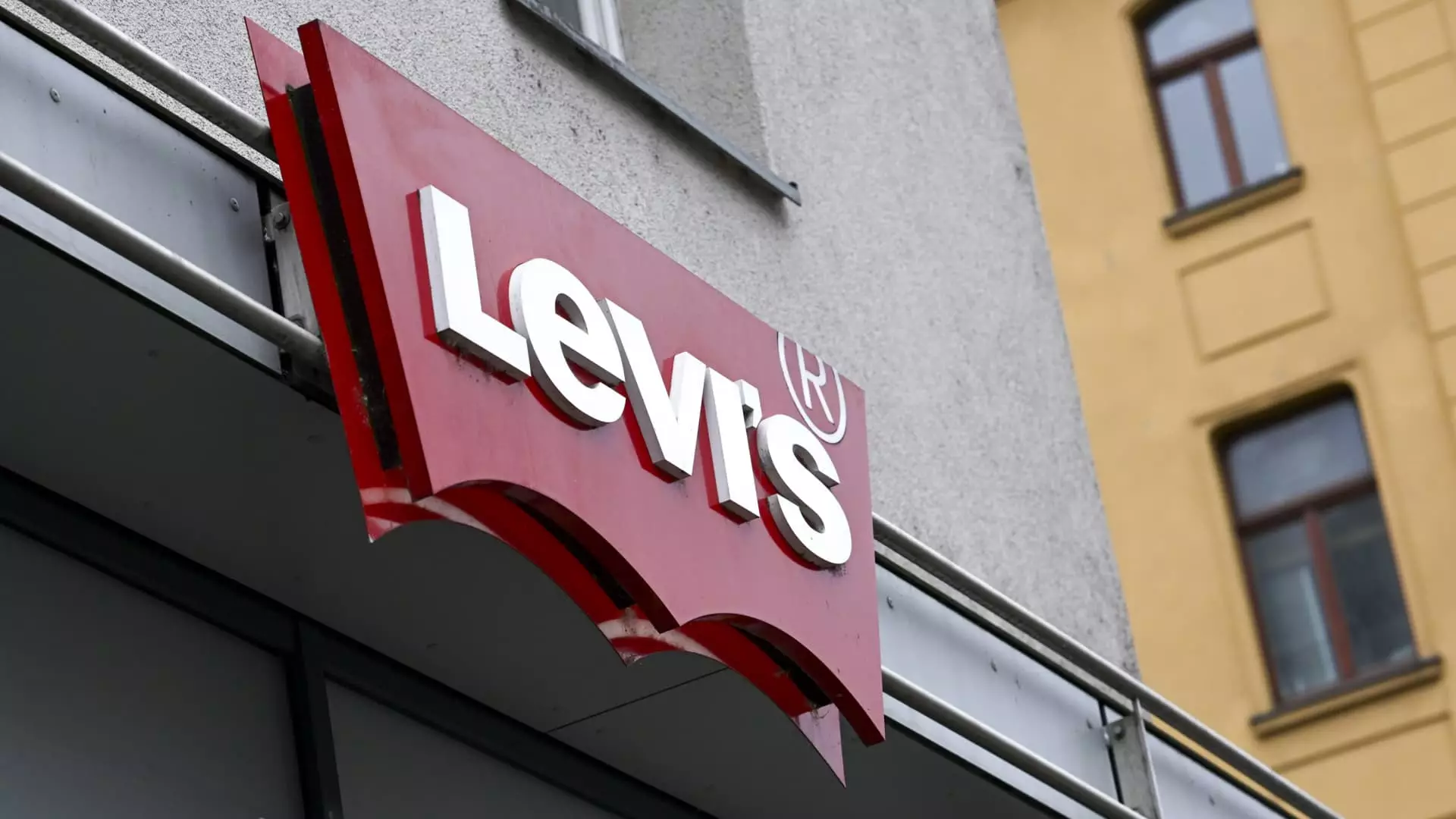In a significant strategic maneuver, Levi Strauss has decided to divest itself of the Dockers brand, transferring ownership to Authentic Brands Group for a sum of $311 million. On the surface, this may seem like a prudent business decision; however, the underlying currents reveal a far more complex narrative. The departure of Dockers from the Levi portfolio raises questions about the sustainability of traditional brands in an ever-evolving fashion ecosystem that thrives on rapid trends and consumer whims.
The deal appears beneficial in that it allows Levi to double down on its core offerings — denims and athleisure through its Beyond Yoga line. CEO Michelle Gass has emphasized a focus on direct-to-consumer strategies and a strong international presence. However, this move also unveils the fragility of the Dockers brand, which, while once a titan in khaki wear, has seen a decline as consumer preferences shift—back toward denim, as evidenced by its comparatively dismal sales performance.
The Rise and Fall of an Icon
Dubbed an innovator in the early days of casual wear, Dockers was born in 1986 as Levi’s attempt to carve out a market niche separate from jeans. It skyrocketed in popularity during the 1990s and early 2000s, but like a fleeting summer trend, its appeal has waned in recent years. So what went wrong? The khaki’s failure isn’t merely a matter of fashion; it’s indicative of deeper issues in how brands innovate and engage with new generations.
The brands that thrive today do so because of their ability to adapt to shifting cultural landscapes. Levi’s foresight in recognizing the decline of khakis should have prompted a reinvention of Dockers rather than a sale. Did Levi’s leadership truly analyze consumer trends, or was this decision merely a knee-jerk reaction to stagnation? While it’s commendable to focus on core products, abandoning Dockers without a fight suggests a defeatist attitude rather than one of resilience and adaptability.
The Role of Brand Management Firms
Authentic Brands Group, known for its brand management prowess, will now handle Dockers’ intellectual property while leaving its operational aspects to Centric Brands. Authentic claims it can breathe new life into Dockers, capitalizing on its extensive licensing network. Yet, this brings a convergence of opportunities and potential pitfalls.
On one hand, Authentic’s global reach could help revitalize Dockers in international markets where khakis still reign supreme. However, an abrupt change in stewardship raises skepticism regarding the brand’s identity. The ‘Unlock New Opportunities’ mantra sounds optimistic, yet one must ask: will they respect Dockers’ legacy while attempting to transform it? The brand’s resurgence hinges on striking a delicate balance between honoring its storied past and creating relevance in today’s fast-paced fashion industry.
A Cautionary Tale for Legacy Brands
The Dockers saga serves as a stark reminder of the precarious nature of legacy brands. The leniency with which consumers view traditional, longstanding names has changed dramatically; they are now more discerning, demanding authenticity and innovation. Levi’s decision to sell Dockers encapsulates a broader trend in the industry: legacy brands must either evolve or risk obsolescence.
It’s crucial that modern companies recognize that financial performance isn’t just about numbers; it also reflects public perception and cultural relevance. By relinquishing control of Dockers, Levi’s may have inadvertently signaled that it doesn’t believe in the brand’s future potential. Is this a defeatist mindset, or a calculated move in favor of more lucrative pursuits? Either way, it raises the stakes for brands that find themselves in a similar predicament.
The sale ultimately leaves Dockers teetering on the brink of reinvention, with an uncertain future ahead. In a landscape where consumer loyalties are fluid, its survival may depend less on its historical legacy and more on its ability to resonate with a new generation of wearers looking for meaning in every stitch. The fashion industry’s relentless march forward demands that brands either keep pace or risk fading into obscurity.


Leave a Reply